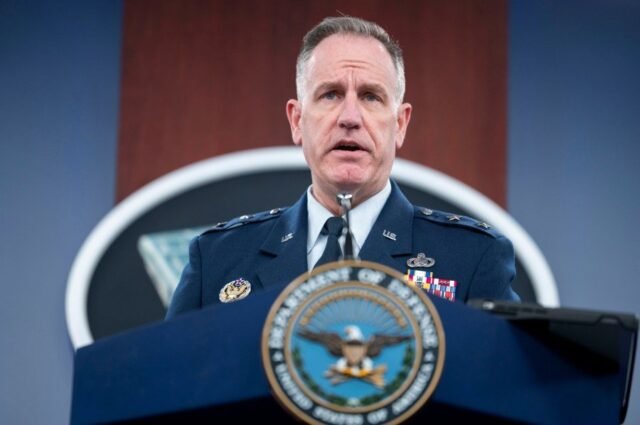U.S. service members could lose their holiday pay if the U.S. government shuts down this weekend, the Pentagon said.
Unless lawmakers reach a deal by the end of Friday to fund the federal government, active-duty troops will not receive their pay at the end of the month, reservists attending training will not be paid, and federal civilians will not be compensated if they do. Press secretary Maj. Gen. Pat Ryder told reporters Thursday that they are required to work during the shutdown.
But Ryder stressed that even without pay, service members and the military overall will continue to protect national security.
“In the event of a funding lapse and a government shutdown, the Department of Defense will continue to carry out our primary responsibility and mission to defend our nation and the American people,” Ryder said. “However, it is important to note that military personnel will not receive their pay until Congress appropriates new funds.”
Congress was on track to pass a major government funding bill earlier this week before Republican infighting derailed the process.
The first plan, a bipartisan effort, failed after it was opposed by several House members, President-elect Trump and Elon Musk, who used his social media platform X to attack the bill and threaten Republican lawmakers who supported its passage.
The House then rejected a GOP-drafted spending proposal backed by Trump on Thursday.
Plan C, which House Speaker Mike Johnson (R-La.) said would be voted on Friday, would tie a three-month extension of government funding to $110 billion in disaster relief and farm aid. That bill does not include a debt ceiling increase that Trump has demanded.
If it also goes up in flames, a government shutdown would leave tens of thousands of workers furloughed, delay government contracts and vendor payments and leave service members without pay at the end of the month.
Ryder said the Pentagon was making “prudent planning and preparations for a potential shutdown,” with Defense Secretary Lloyd Austin monitoring the situation.
“The funding cut would cause serious disruption to the Department of Defense and could still be avoided,” he said.




